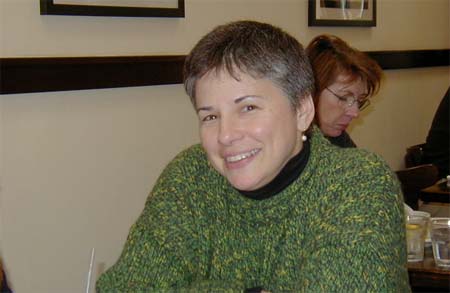Katharine Weber is most recently the author of Triangle.

Listen: Play in new window | Download (Running Time: 1:08:27 — 62.7MB)
Condition of Mr. Segundo: Fleeing the Bolsheviks.
Guests: Katharine Weber and Levi Asher
Subjects Discussed: Fibonacci spirals and Sierpinski triangles, Fibonacci sidewalks, the unknown etymological origins of the Triangle Shirtwaist Factory, interview transcripts and excised questions, designing the Esther and Ruth Zion vernaculars, colloquies within the novel, .edu addresses that have been duped by counterfeited transcripts, Ian McEwan, Ruth Zion’s character makeup and academia, MacArthur genius grants, the authentic requirements of contemporary novels, approaching historical events from a contemporary vantage point, James Frye, fact vs. fiction, intrusive footnotes and reader obedience, “based on a true story,” the 2003 Station nightclub fire, comparisons between the Triangle fire and the World Trade Center, children’s books about the Triangle fire, Henry Botkin and Gershwin, Thanksgiving and other American traditions, on seeing too many patterns in life, “crackpot magpie” research, not having a high school diploma, and being an autodidact.
EXCERPT FROM SHOW:
Weber: It’s not just that she’s been speaking English for fifty years, but she’s been speaking the language of the Triangle fire. She’s been telling the story and telling the story. So what interested me wasn’t just developing her use of English, but her developing and mutating over time relationship to the story, and how it stuck to the story, and how she wandered off the story and got details wrong over time. We all get details wrong over time. If you now had to describe to me every moment of a car accident you were in thirty years ago, even if you think that’s what happened, it might not match the police report. And you may have changed it because someone saw something that you didn’t actually experience, but now you’ve incorporated it into your experience. And it becomes part of your telling of the story. I’m interested in how we tell our stories, the agenda we bring to the telling of the stories, but also so much of the novel is about the agenda we bring to the listening of stories. We ask our questions with agendas as much as we tell stories with agendas.
(A co-production of the Litblog Co-Op and The Bat Segundo Show.)
Listen: Play in new window | Download (Running Time: 1:08:27 — 62.7MB)
3 Comments